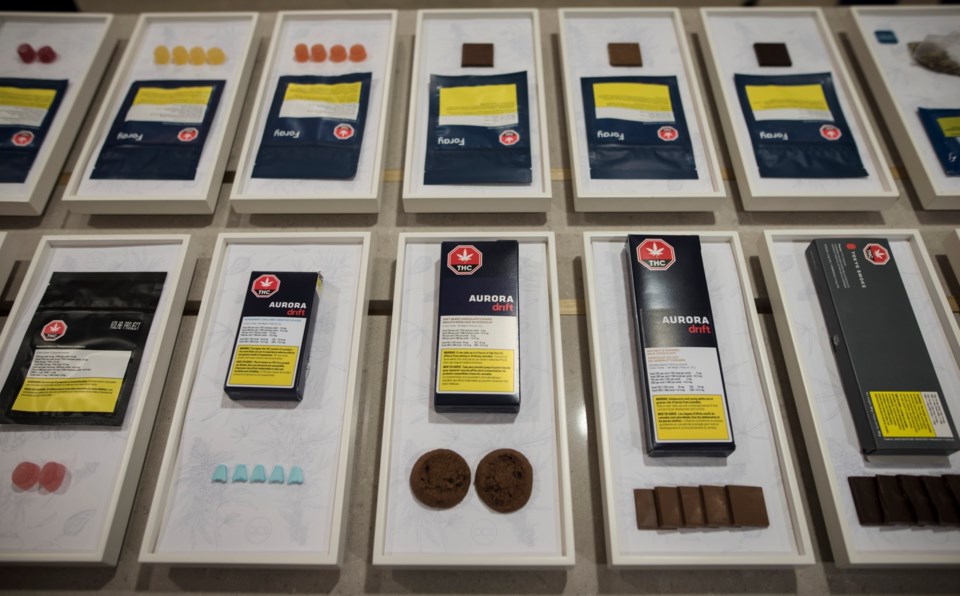A new study has linked the legalization of cannabis with a rise in the number of Ontario seniors visiting emergency rooms.
The number of people aged 65 and over checking into ERs in Ontario for what amounted to cannabis poisoning grew sharply over an eight-year period, particularly after cannabis was legalized, according to the report published Monday in the peer-reviewed medical journal JAMA Internal Medicine.
"These are not people getting too high, being giddy and laughing," said Dr. Nathan Stall, a geriatric specialist at Sinai Health in Toronto and lead author of the report.
"These are people very sick to the point where health-care practitioners, without knowing that they've consumed cannabis, consider other serious health conditions, like stroke, serious infection (and) serious metabolic abnormalities."
The study examined three periods over eight years, using deidentified Ontario Ministry of Health administrative data to get a sense of shifts in ER visits by older adults.
The first window covered pre-legalization spanning from early 2015 until just before legalization in October 2018, while the second period started when dried cannabis sales were rolled out. The third span covered nearly three years after edibles were introduced into the market in January 2020.
The study reported the pre-legalization rate of emergency room visits among older adults, which stood at 5.8 per 100,000, soared to 15.4 per 100,000 during the first phase of legalization. The rate rose again to 21.1 per 100,000 once edibles were legalized.
Researchers suggest the data may underestimate the magnitude of cannabis poisonings in older adults, since the study only tracks ER visits and doesn't account for people who sought care elsewhere or not at all.
Stall said the legalization of edibles occurred just before the COVID-19 pandemic lockdowns, which may have deterred some people from visiting ERs.
The findings come after several recent studies outlined a rise in the number of kids hospitalized for accidental cannabis poisonings after legalization. Those figures saw a notable spike after edibles such as THC-infused gummies, chocolates and baked goods were approved for sale in 2020.
A 2022 report published in the New England Journal of Medicine, for instance, found hospitalizations jumped more than two-and-a-half times immediately after Canada greenlit the recreational use of cannabis. The study looked at cases in Ontario, Alberta, British Columbia and Quebec.
The hospitalization rates rose again in Ontario, Alberta, and British Columbia after those provinces approved edibles in January 2020 — while rates stayed the same in Quebec, which did not permit edible sales.
While Stall's report on older adults only included ER visits and not rates of hospitalization, he said the data "saw similar effects of increasing hospitalization for cannabis poisoning with the legalization of edibles."
The latest study of older adults was unable to conclude how many of the poisonings were intentional such as self-medicating or unintentional such as accidental ingestion, but Stall said it's likely many users hadn't accounted for other factors before consuming cannabis.
For instance, he said users who use cannabis coupled with other medications could experience negative effects or unintended drug interactions, while changes to body fat composition with age could affect how quickly the drug left people's bodies.
Some older adults who consumed may have also been unfamiliar with how edibles differ from smoking cannabis, he added.
"When you take edible cannabis and the drug effects are delayed for about three hours and you don't feel anything after an hour, an hour and a half. They may be prone to take additional doses to try and reach that high," he said.
"Once peak effect occurs, you have a phenomenon known as 'dose stacking,' where you're stacking multiple doses together and that's a contributor to poisoning."
Stall said the findings suggest there's room for improvement in education, ranging from public awareness campaigns to clear dosage guidelines for older adults on cannabis packages.
He also said health care providers should recognize many older adults are using cannabis and be willing to "have open and judgment-free conversations about its use."
This report by The Canadian Press was first published May 20, 2024.
The Canadian Press




